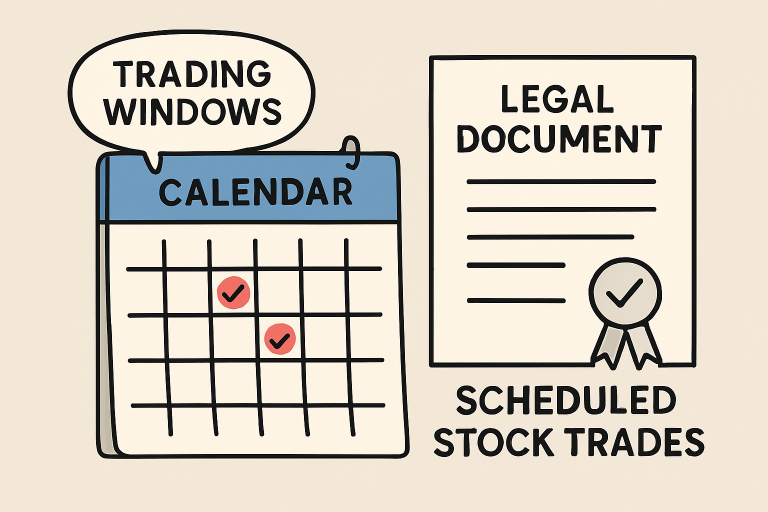Business
Rethinking Personal Finance: Simple Habits for a Stronger Financial Future

Why Personal Finance Matters
Understanding how to manage money is a crucial life skill that brings far-reaching benefits beyond simply growing savings or increasing income. Responsible money management reduces daily stress, enhances decision-making, and creates the freedom to pursue dreams such as traveling, starting a business, or planning for retirement. According to The New York Times, adopting positive financial habits early in adulthood equips people to handle unexpected situations like medical bills, job changes, or economic downturns without derailing their lives entirely. The earlier you start building strong habits, the greater your financial resilience will be.
With so much personal finance advice available, it can be difficult to know which guidance to trust. That’s why real-world experiences, like those shared in Dow Janes reviews, are so valuable. Firsthand feedback helps demystify complicated topics and reassures newcomers that financial wellness is achievable, with the right habits and a dose of patience. These shared perspectives often motivate everyday people to take small but meaningful actions towards their own financial security.
Key Habits for Financial Well-Being
There’s no magic formula, but most financially stable people credit their success to a set of simple, repeatable habits. Start by tracking every expense, even the little purchases that tend to slip through the cracks—coffee, rideshares, or spontaneous streaming subscriptions. Next, make saving a priority over spending on unnecessary items; this can be as straightforward as transferring a fixed amount into savings each month before spending on anything extra. A basic monthly budget, tailored to your income and goals, serves as a powerful tool for preventing financial drift.
Setting goals is equally important: whether it’s paying off a lingering credit card balance, building a cushion for emergencies, or socking away extra for future investments. Familiarity with core investing concepts, like the value of compounding interest and the importance of diversification, allows individuals to take small but steady steps toward long-term growth. Paying every bill on time is a non-negotiable rule that helps maintain good credit and avoids unnecessary penalties. In an insightful CNN report on finance education, adults who regularly monitor and categorize their expenses are consistently less likely to face financial crises, highlighting that consistency is just as critical as financial acumen.
Building Budgets That Work
An effective budget isn’t about restriction—it’s about clarity and setting yourself up for success. Begin by writing down all the streams of income, then methodically listing out all expenditures, from fixed essentials like rent and insurance to flexible costs such as entertainment, hobbies, and the occasional splurge. Many people gravitate towards the 50/30/20 rule: allocating half of all income for essentials (housing, food, utilities), thirty percent for wants (movies, shopping, travels), and twenty percent for savings or debt payments.
Whether you use spreadsheets, envelope systems, or a digital app, the magic happens when you regularly review and tweak your budget to reflect changes in your life and market conditions. This practice creates discipline, enables better choices, and builds momentum towards achieving financial goals. Customizing your approach ensures you’re not left feeling deprived but genuinely empowered to make better decisions for both the short and the long term.
Saving and Investing Basics
Building wealth rarely comes from dramatic windfalls; rather, it grows from consistent, intentional saving and investing over time. Experts recommend treating savings as a non-negotiable expense—automatically transferring a set percentage of your income into a dedicated account each month. This “pay yourself first” strategy removes temptation and guarantees progress, even during busier periods when money management isn’t top of mind.
Investing, particularly in diversified assets like index funds or retirement accounts such as IRAs and 401(k)s, offers a way for anyone to participate in long-term growth, regardless of experience. Compounding interest, even with small initial contributions, adds up significantly over decades. For instance, many financial planners highlight stories of clients who’ve automated just $50 a month towards savings and, through market growth and discipline, watched their nest egg multiply over the years. These incremental steps matter most when they’re repeated month after month.
Pay Yourself First
Prioritizing savings—no matter how modest—can protect you from falling into debt when life throws you a curveball. For example, saving $25 each week can build an emergency fund exceeding $1,300 in just one year, which may cover a minor car repair, medical bill, or job search expenses. Even small habits deliver big rewards over time.
Navigating Debt Efficiently
Debt, for many, is part and parcel of financial life, whether it’s student loans, car payments, or mortgages. Smart debt management starts with a complete inventory: list every debt, noting each balance, minimum payment, and the associated interest rate. This exercise demystifies obligations and allows you to make strategic decisions.
From there, prioritize how to tackle debts. The avalanche method recommends paying off high-interest debts first, accelerating progress and saving money on interest. Conversely, the snowball method urges paying off the smallest balance first, creating early psychological wins that keep motivation high. Not all debts are equal—student loans and mortgages can serve as stepping stones for future gains, while credit card debt often leads to ongoing stress and financial strain.
Making Smart Choices
Avoid new high-interest debts whenever possible, focusing instead on timely payments and strategic elimination of old balances. Good habits here contribute directly to peace of mind, better credit, and increased freedom for future opportunities.
The Role of Financial Education
Gaining financial knowledge doesn’t end with high school math classes—it’s a lifelong pursuit. There are more accessible avenues than ever before: libraries, nonprofit workshops, free online resources, and community classes that address practical aspects of money management. Even dedicating thirty minutes a week to a finance podcast, a budgeting webinar, or reading a news article boosts your ability to make informed and confident decisions.
As society recognizes the invaluable role of financial literacy, programs are expanding, lowering barriers and helping more people collectively make smarter choices. Knowing how to research, evaluate, and apply new financial information can fundamentally shift your relationship with money, resulting in improved satisfaction and reduced anxiety about the future.
Leveraging Digital Tools
Digital technology puts robust financial management in the hands of anyone with a smartphone or computer. There are apps for every style—some focus on categorizing expenses, others track bill due dates, while more advanced options integrate investment dashboards and credit monitoring. The key advantage? Automatic reminders and data visualizations transform confusing numbers into clear, actionable insights.
These digital advances democratize financial wellness, making it easier for even the busiest people to stay organized and informed. Stats suggest that nearly half of U.S. adults now use personal finance apps, harnessing the power of technology to prevent overspending, stick to savings goals, and minimize forgotten payments. Play around with several tools—visual learners might love colorful pie charts, while list-makers might gravitate towards simple to-do lists. No matter your style, technology turns once-daunting tasks into manageable, even enjoyable, routines.
Creating Long-Term Peace of Mind
Financial success doesn’t require perfection, but it thrives on consistent progress and learning from setbacks. Each step forward—no matter how small—lays another brick in the foundation of future security. Planning, saving, and ongoing education allow individuals to weather storms, navigate uncertainty, and pursue goals, confident in their ability to adapt.
The positive changes won’t be immediate, but the payoff comes in the form of reduced anxiety, fewer emergencies, and more freedom to shape your future how you envision it. With a thoughtful approach to daily habits, anyone can move beyond merely surviving to truly thriving financially.
Business
Why Invest in Digital Marketing & How to Choose a Company in Boston

If you have just recently started a business in Boston, or you’re thinking of doing it, there’s no doubt that you’ll have to think about marketing. The same goes for if you’ve been running a business for a while, because the need for investing in marketing never really stops. After all, you can’t succeed on a market that is so competitive without using the right strategies to stand out, reach potential customers, turn them into paying ones, retain them, and generally build a great brand image.
Here’s why investing in digital marketing is a good move: https://www.forbes.com/councils/forbesbusinessdevelopmentcouncil/2022/06/21/7-reasons-to-invest-in-your-website-and-digital-marketing-strategy/
Of course, the modern world has brought about some changes to the way we are all doing business. Meaning, thus, that in addition to finding a way to stand out offline, you’ll need to do the same thing online. To put it differently, you will absolutely have to think about investing in digital marketing today. And, if you are not sure why, then you should keep on reading to find out.
Apart from not being sure why investing in it is a good idea, you may also not be sure about how to do it right. More precisely, you may not know how to choose the right company in Boston to provide you with these services, because you absolutely know already that you won’t be able to do it alone, and that you will need to have the right pros on your side. And, well, that is another topic we’ll cover for you today.
Why Invest in Digital Marketing
Naturally, we are going to begin with the question of why it is that you should invest in digital marketing in the first place. After all, there would be no point in talking about how you can find and hire the right pros in Boston if you’re not even sure that you need them. So, let us first tell you more about why you need them. Learn more about the benefits.
Everyone Is Online Today
First things first, everyone is online today, and that is a fact that you need to accept. This goes first for your customers, meaning that they will search for the products and services you are selling online, so it would serve you well to appear in front of them when they are doing so. But, it also goes for your competitors. Your competitors are investing in digital marketing, so if you don’t, they are bound to snatch most of your customers, which is not what you want. So, invest in this to stay competitive, and to keep on gaining customers.
Reach the Right Audience at the Right Time
Digital marketing is not simply about getting the word of your existence out there. It is more so about letting the right people know of your existence, and at the right time. That is, you want to appear in front of people when they are searching precisely for what you are offering, possibly with the intent to buy, as that is sure to help you get more customers and boost your profits. And, digital marketing makes it happen.

Build Trust and Credibility
Moving on, when you invest in various online strategies, you will succeed in establishing yourself as a reliable and trusted source. In simple words, you will establish yourself as authority, which will build trust and credibility, and thus help you boost your brand recognition and reputation, and ultimately become a known name in your industry. And, this is certainly what you want.
Get Measureable Insights
Another great reason why you should invest in digital marketing is because you will get measureable insights. You will know precisely which strategies are working perfectly, and which ones may need some adjustments. You’ll understand consumer behavior better, which will help you make more informed and smarter business decisions.
A Cost-Effective Marketing Solution
Finally, you should always keep in mind that this is a cost-effective marketing solution. The ROI can be amazing, especially if you choose the right pros in Boston to do the work for you. Which is precisely the next topic we will cover below.
How to Choose a Company in Boston
So, how can you choose the right company in Boston to do this for you? Well, you’ll come across numerous one through a few simple online searches, or through recommendations. When you, thus, come across Helium Digital Marketing Boston or any other experts, take time to research them. Check their experience for one thing, and not only general one, but also specific industry and local experience.
Then, remember to read some reviews that have been written by previous clients, as those will help you determine the reputation of the potential companies. Moving on, interview a few of the candidates, ask any questions you may have, and compare all the info. And, finally, get more quotes and compare them too, but all while keeping the rest of the mentioned factors in mind as well.
Business
Buying a Plug in HPWH: How to Do It Right

As a homeowner, you undoubtedly want to maintain your household perfectly, and to ensure comfort, as well as the smooth completion of all those daily tasks. And, of course, you will need hot water for most of those things, such as cooking, washing the dishes, bathing, and numerous other things. To have hot water, naturally, you will need to have a great water heater installed. So, whether your current one isn’t working well, or you’re looking to install a new one at a new property, you will certainly want to get a great one.
If you’re wondering how to replace one, this may help you understand: https://www.thespruce.com/replacing-a-water-heater-1824920
Now, when you first figure out that you need to replace your current device, or when the time comes for you to buy a new one at that new property, you will probably spend some time looking at those different types that exist on today’s market, in an effort to make the best choice for your home. And, well, that is when you will come across numerous different devices, including the plug in heat pump water heater. There is certainly no doubt that that one will grab your attention.
After all, we are talking about a water heater that is known for being highly energy efficient. And then, the fact that it is a plug in one means that you can have it easily installed at your property, without having to do any additional electrical or plumbing work, since the device plugs into a standard household outlet. Furthermore, these are also quite durable, meaning they will pay off in the long run, especially when you get a highly energy efficient one that will save you money on electricity bills, as well as if you potentially make use of some rebates and incentives that could lower the initial costs.
Anyway, the fact that you are here tells me that you have already decided to get this plug in HPWH for your property. The only thing left to do now, thus, is figure out how to, well, do that the right way. That is, how to buy the perfect device for yourself. And, that is something that we will discuss below, taking you through the steps that you should take, as well as letting you know of the factors you should consider in order to ultimately make the perfect decision. Click this to learn what you need to know about HPWHs.

Choose the Right Size
It should go without saying that choosing the right size is of utmost importance here. And, to select the right size, you will need to determine your particular household needs, as well as think about the actual space where you want to have this device installed. Choosing the right tank capacity is definitely crucial, so don’t make any hasty decisions here, and get some advice from professionals if you’re not sure how to make this choice on your own.
Check Efficiency Ratings
Moving on, you will also have to check the efficiency ratings. When getting a plug in HPWH, you can surely expect the device to be energy efficient. Yet, you should know that there are different ones out there, and that their energy efficiency ratings are also different. Your task here is to get a device that has a good energy efficiency rating, as that is how you will save money on electricity in the long run.
Consider Noise Levels
Most plug in HPWHs tend to be quiet, but this is something you should check, instead of assuming. This goes especially if you’re planning on having the device installed, say, near a sleeping area, or in a small apartment. The idea is for you to check the sound ratings before making any kinds of buying decisions, if the noise level is a factor for you.
Research Different Brands and Compare
Naturally, in addition to simply checking the devices and their quality, you should remember to research the different brands as well, and then compare them. The goal here is for you to get an amazing, Easy-install plug-in heat pump water heater from a reliable and reputable brand that is known for offering great quality products. So, take time to research those brands out in more details, and then ultimately choose the best one for you.
Keep Warranties in Mind
Keeping warranties in mind is also of great importance here. In short, you want the professionals you get this product from to offer you warranties on the device. So, check those out to see how long they last and what it is that is covered.
Compare the Prices
Finally, remember to compare the prices. But, also remember to check for tax credits, rebates and incentives. That way, you will ultimately get the best plug in HPWH for a completely fair price, and thus save on your investment right from the start.
Business
Insider Trading Plans: A Practical Guide for Corporate Executives

Introduction to Rule 10b5-1 Trading Plans
Navigating insider trading regulations is a critical responsibility for corporate insiders and executives. The SEC’s Rule 10b5-1, established in 2000, was designed to provide executives with a legal avenue to trade company stock without the risk of being accused of insider trading—so long as the trades are set up in advance according to predetermined criteria. 10b5-1 trading plans are structured to allow such scheduling, helping insiders demonstrate that trades were not influenced by material nonpublic information (MNPI) at the time of plan adoption.
These plans are increasingly important given today’s volatile market environment and the heightened scrutiny surrounding executive stock sales. As regulatory scrutiny increases, having a robust 10b5-1 plan is not just a good idea—it’s essential for maintaining transparency, supporting effective compliance, and protecting both the individual and the corporation.
By leaning on these predetermined schedules, corporate officers can focus on running the business, secure in the knowledge that their trades are insulated from legal risk, so long as the rules are strictly followed. This blend of rigor and flexibility is why so many companies encourage key personnel to use 10b5-1 plans as a core tool for insider trading risk management.
For those new to this topic or seeking to understand the nuances of regulatory compliance in executive trading, this guide clarifies the structure of 10b5-1 plans, highlights key recent changes, and offers practical implementation tips.
Recent Regulatory Changes and Their Implications
In December 2022, the Securities and Exchange Commission made significant amendments to Rule 10b5-1 to address potential abuses and increase investor confidence. Some of the most notable changes include:
- Cooling-Off Periods: Directors and officers who establish a 10b5-1 plan must now wait a specified period before the plan’s first trade can be executed. This cooling-off period, commonly 90 to 120 days, is meant to ensure that trades are not coordinated on the basis of inside information.
- Restrictions on Multiple and Overlapping Plans: Executives are now restricted from using multiple, overlapping 10b5-1 plans or single-trade plans, practices that previously enabled potential manipulation of trade timing and volume.
- Enhanced Public Disclosure: Companies must provide more detailed disclosures in their quarterly reports to the SEC about insiders’ adoption, modification, or termination of 10b5-1 plans, thereby boosting transparency for investors and market participants.
These reforms are designed to close loopholes and elevate market integrity. Executives and companies alike need to adapt quickly to these amendments in order to avoid unwanted regulatory attention or reputational damage. For an in-depth breakdown of these SEC rule changes, see this SEC press release. Overall, the updated Rule 10b5-1 requirements underscore the SEC’s broader push for greater transparency, accountability, and investor protection. Staying informed and aligning internal trading policies with these reforms can help organizations maintain compliance while reinforcing trust with shareholders and the broader market.
Best Practices for Implementing 10b5-1 Plans
To ensure both full regulatory compliance and the credibility of insider trading defenses, executives should adhere to the following best practices for designing and managing their 10b5-1 trading plans:
- Establish Plans Only During Open Trading Windows: Initiate or modify plans when you do not possess MNPI, ideally during company-authorized open trading periods. This supports the plan’s good-faith nature.
- Respect the Required Cooling-Off Period: Never execute trades until the mandatory cooling-off period has elapsed. Any deviation can undermine the plan and raise red flags with regulators.
- Avoid Overlapping Plans: Limit yourself to one active 10b5-1 plan to avoid the appearance of gaming the system and to align with new restrictions.
- Maintain Detailed Records and Approvals: Document the rationale, approval process, and dates of plan adoption, modification, or termination. These records will be essential if the plan’s legitimacy is ever called into question.
- Conduct Regular Reviews: Revisit your plans periodically with legal counsel and compliance teams to ensure ongoing alignment with current laws and your company’s policies.
Many experts recommend a proactive approach to plan management, including regular training sessions and audits, to help prevent unintended violations.
Conclusion
For corporate executives and insiders, 10b5-1 trading plans are indispensable tools for lawful participation in equity markets. As regulatory expectations and enforcement intensify, careful adherence to best practices—matched with rigorous disclosure and diligent plan maintenance—forms the foundation for effective compliance. Remaining informed, seeking regular legal counsel, and following the latest guidance from agencies like the SEC will help executives safeguard their interests and uphold corporate integrity for long-term trust with stakeholders.





